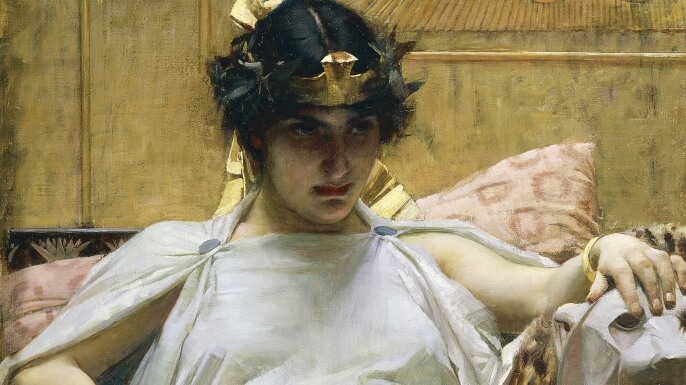A lot of people know the name Cleopatra, even if just because of the 1963 movie that bore her name and starred Elizabeth Taylor. But I don’t think many people really know about her. For example, did you know she married her younger brother to ascend the throne, then had him killed? Did you know she spoke seven languages, and was the only Ptolemaic ruler to speak Egyptian to its native people? Did you know she wasn’t considered a great beauty, but that she was known to be extremely charismatic? And I bet you didn’t know she was a scholar who studied under the greatest teachers at the Library of Alexandria.

There’s so much to know about Cleopatra, but unfortunately there isn’t much mention of her in classical texts. Pages of ancient books have gone missing, and brief passages that refer to authoritative books… Well, those authoritative books are nowhere to be found. Burned, perhaps, when the Library of Alexandria went up in flames as Julius Caesar fought against Cleopatra’s brother (who, remember, was also her husband). A few years ago I was lucky enough to visit The Franklin Institute in Philadelphia to see a traveling exhibit about Cleopatra. In the few hours I was there I learned so much about her, but what fascinated me the most was a preserved document that was believed to bear her handwriting. The text of the document granted tax exemption to an associate of Mark Anthony, and at the bottom was a single word in small, neat handwriting. It was the equivalent of “make it so.”
Have I piqued your interest? If so, you should read this biography. It’s really fantastic.
Cleopatra: A Life
Stacy Schiff
DB72130 / CL14368
Pulitzer Prize-winning author portrays Cleopatra VII (69-30 B.C.E.), the last Egyptian pharaoh of the Greek Ptolemy dynasty, a woman of great wealth, education, and political acumen. Describes Cleopatra’s relationships with Julius Caesar and Mark Antony. Highlights the city of Alexandria’s luxury, Egypt’s culture, and its conquest by Rome. Bestseller. 2010.
